Why Marijuana Gives You the Munchies
Everyone has heard of the munchies, but what is it about marijuana that makes you so hungry?
Everyone is familiar with the munchies; that intense, gotta-have-some-snacks-now feeling you get from using marijuana. However, not many people know why marijuana gives you the munchies. In order to provide some edutainment, we will explore the science behind cannabis and its connection to the salty, sticky, sweet snacks that so often follow. There are many different explanations for why cannabis causes the munchies, and each one may just be playing a part in a larger system that we do not yet understand. Just because we do not have a full understanding does not mean that we know nothing at all, however. So lite up, settle in, and get ready to learn why marijuana gives you the munchies.
High Science
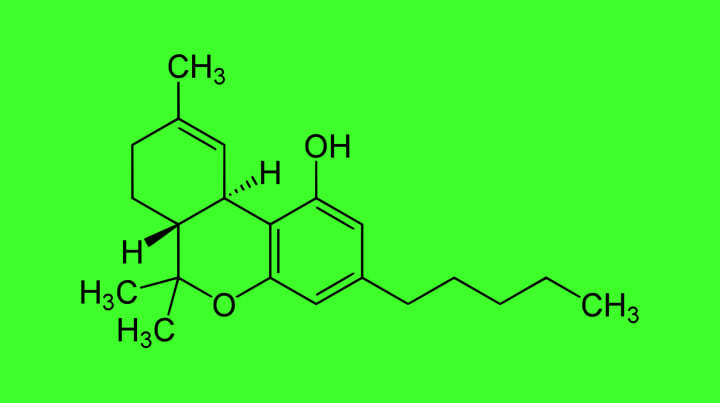
The main active ingredient in marijuana, THC, works on humans by interacting with what is known as the endocannabinoid system. This system consists of body processes that help to regulate things like appetite, memory, emotions, and response to pain. There are a number of chemicals naturally produced by the body which interact with this system, which are called cannabinoids. THC acts like these chemicals, and thus can influence the body systems that they regulate.
There are a number of different explanations for how influencing the endocannabinoid system makes you hungry, and they all probably play some role in understanding the process. Additionally, most studies have been conducted on mice and may not be indicative of the way that marijuana operates in humans. As a result, while we have a good idea why marijuana causes the munchies, the science still leaves some room for discoveries to take place. However, one thing that is for sure is that marijuana affects your hunger in a number of different ways. Specifically, THC and marijuana influence scent, hormones, the script your brain cells follow, and flavor.
Scent

It is not surprising that scent plays a huge role in how we approach food. Everyone can imagine the smell of their favorite comfort food and instantly be taken back to memories of how much they love it. In fact, scent is the sense that is most closely tied to memory in humans so it makes sense (hey look I'm punny!) that it plays such a large role in determining if we want to eat. One study found that mice who were genetically engineered to lack cannabinoid receptors in the part of their brain connected to scent. Scientists found that these mice experienced no change in appetite. As a result, this theory says that marijuana creates a more intense reaction to the smell of food, causing people to want it more.
This discovery about the relationship between the sense of smell and marijuana provides fertile ground for continued research. Understanding the ways that endocannabinoid system interacts with different things like food and sleep can provide scientists with possible routes to determining new treatments for things like obesity, insomnia, diabetes, and many other conditions.
Ghrelin
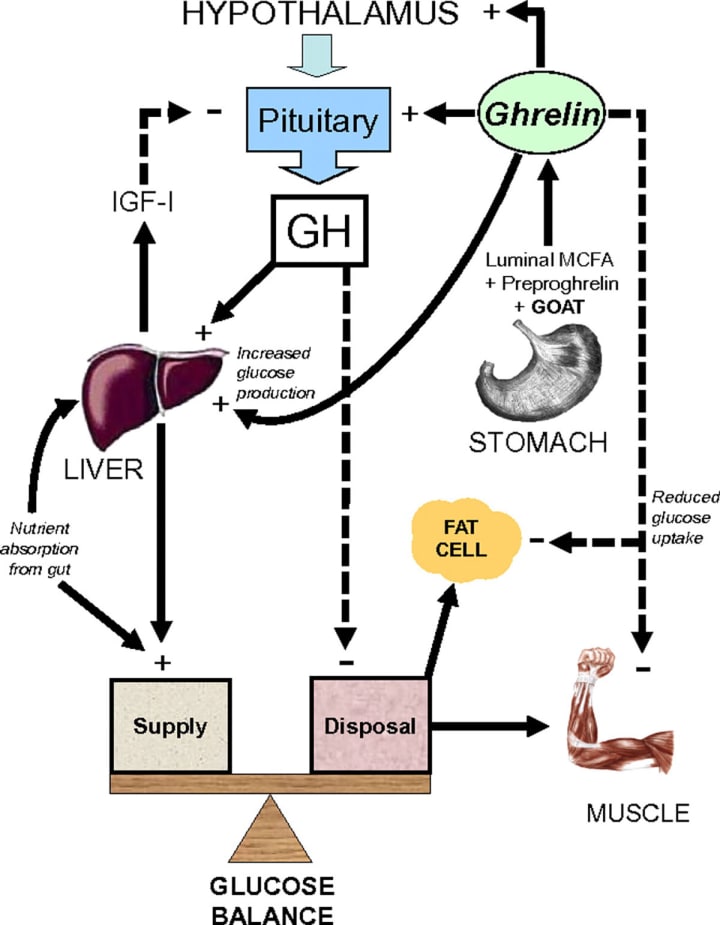
One popular theory that attempts to explain why you have the sudden urge for something you haven't had since you were a child is the role that the endocannabinoid system plays in regulating hormones. Hormones play an important part in the regulation of different body systems. THC bonds to cannabinoid receptors in the hypothalamus, which in turn produces more of the hormone ghrelin. Ghrelin plays an important role in regulating hunger, so stimulating the release of more ghrelin contributes to the decision that 1AM Tacos are a good idea...
This theory is backed up by a number of different studies which find that the release of ghrelin follows the consumption of marijuana, as well as other studies that study hunger and diet which have accurately described the way that ghrelin works in the body. Only time will tell if this is the primary driver of the munchies, or just part of a larger process.
Dopamine
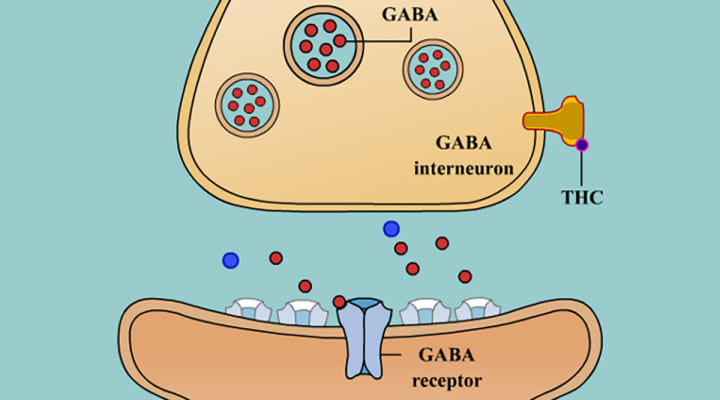
Another hormonal interaction stimulated by marijuana takes place in the nucleus accumbens, which is the region of the brain that controls the release of dopamine. THC bonds to the cannabinoid receptors in this region of the brain and overwhelm their standard process. Dopamine is the chemical that gives the sensation of pleasure. It is the brains way of rewarding itself for doing things that help to keep it alive. As a result, dopamine is released naturally when you eat.
Stimulating more dopamine production when eating might cause your brain to experience even more pleasure from food than usual, which is a very clinical description of the munchies. It is unclear if the increase in dopamine production causes you to be hungrier and seek out more pleasure-inducing actions, or if the rush of dopamine caused by eating while high makes people want to seek out more food, even if they have just eaten what would normally be their fill.
Script Changes
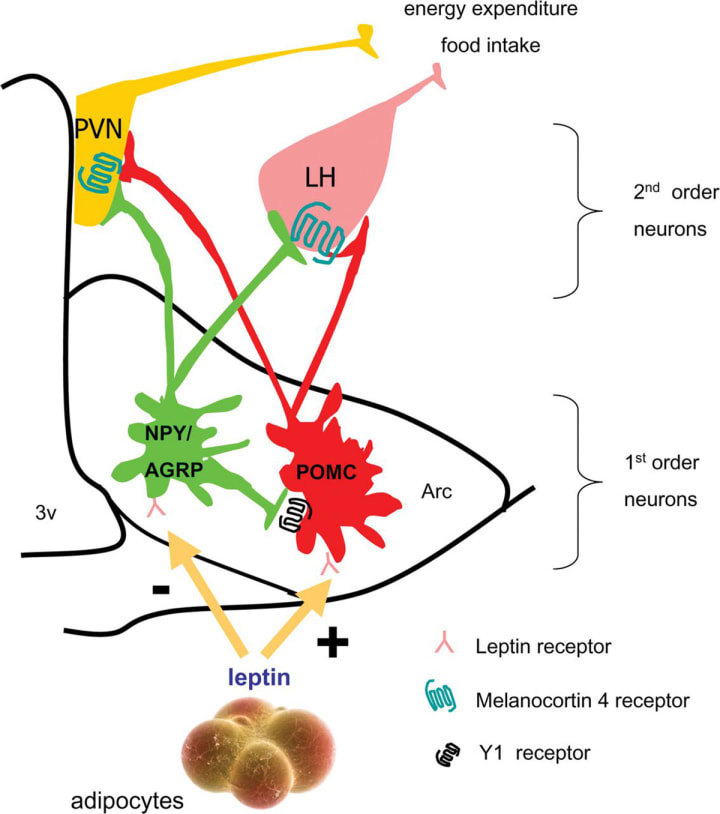
Your brain cells have different jobs and tasks depending on where in the brain they are located. One type of cell, known as a POMC, or pro-opiomelanocortin, plays an important role in preventing you from overeating. These cells let your body know that it is full and shut down the processes that cause you to want to stop stuffing your face with whatever you can find in the fridge. Researchers found that marijuana caused these cells to produce different chemicals than the ones they normally release. The new chemicals released are not dangerous, they are just not the normal product of POMC's. These different chemicals may be sending signals to the body that it needs to eat more, causing the uncontrollable urge to snack. One researcher described it as being like stepping on the brake pedal of a car and it accelerating as a result.
If it turns out that POMC's are the primary cause of the munchies then researchers will have found an important piece of evidence for how hunger works in the human body. Scientists are particularly interested in these chemicals because of the implications that they can have for future research, both on marijuana itself and in giving scientists and health professionals and insight into the complicated way that the human body works.
There is still some confusion on this issue, however. Scientists are split over whether the alternative chemicals POMC's release are the cause of hunger, or the lack of the standard POMC product means that the forces keeping hunger locked down are no longer effective. The distinction between these two processes sounds like it doesn't matter, but that is not exactly the case. This chicken-egg situation means that more studies and research will have to be done to determine the exact way that marijuana influences how hungry you are. Either way the result is the same, the potential to wake up surrounded by what is left of the contents of your pantry.
Flavor
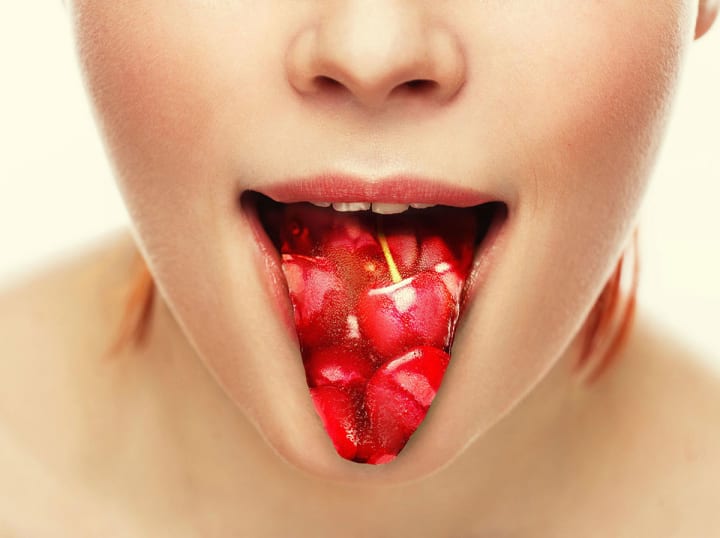
Along with scent, flavor is another huge factor that plays a role in someone's desire to empty their local store of its entire inventory of snacks. Flavor is strongly related to scent, and the same study that found that marijuana increases activity in the parts of the brain responsible for scent also argues that this chemical activity also influences the way that food tastes. As a result, it is possible that THC makes food taste more intensely like itself. Therefore, your chocolate bar becomes the chocolatestbarest thing you've ever eaten, and French fries taste like they were dropped in the fryer and salted by a choir of angles. Because the tests were done on mice and not on humans, more research remains to determine exactly how flavor is influenced by marijuana. But it is safe to say that findings are likely to indicate that, like it does for most things, marijuana simply makes food taste better.
One area of interest for researchers is how the enhancement of flavor interacts with dopamine production. More research will have to be done to determine whether increased dopamine makes the food taste better, or if the stronger flavor of food increases dopamine production. Determining this relationship can have important implications for the future of marijuana as a medical treatment. It can also give scientists and researchers a better look into the way that people are built, potentially leading to new drugs, treatments, and therapies to help people all over the world.
As you can see, there are a number of different ways that cannabis influences your hunger. It can increase dopamine production, causing you to experience extreme pleasure with each bite. It can change the way that brain cells work, causing them to release more of the chemical that tells your body it is time to eat. It can enhance the smell and flavor of your food, making it seem incredibly appealing. More work still needs to be done to determine exactly why marijuana gives you the munchies, but, while science is out solving this most important riddle, why not get a little stoned and have a snack?
About the Creator
Wendy Weedler
Lives in Washington D.C. Has been part of the legalization movement for decades.






Comments
There are no comments for this story
Be the first to respond and start the conversation.